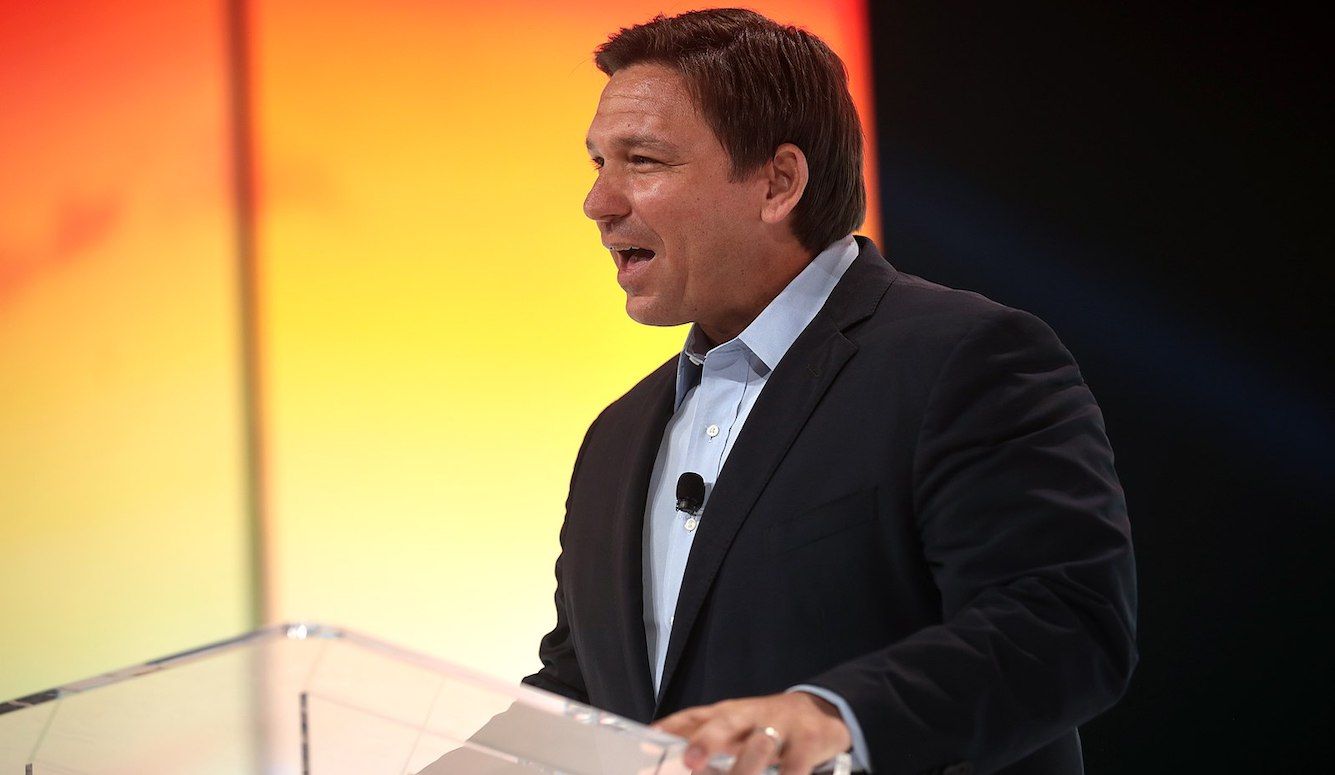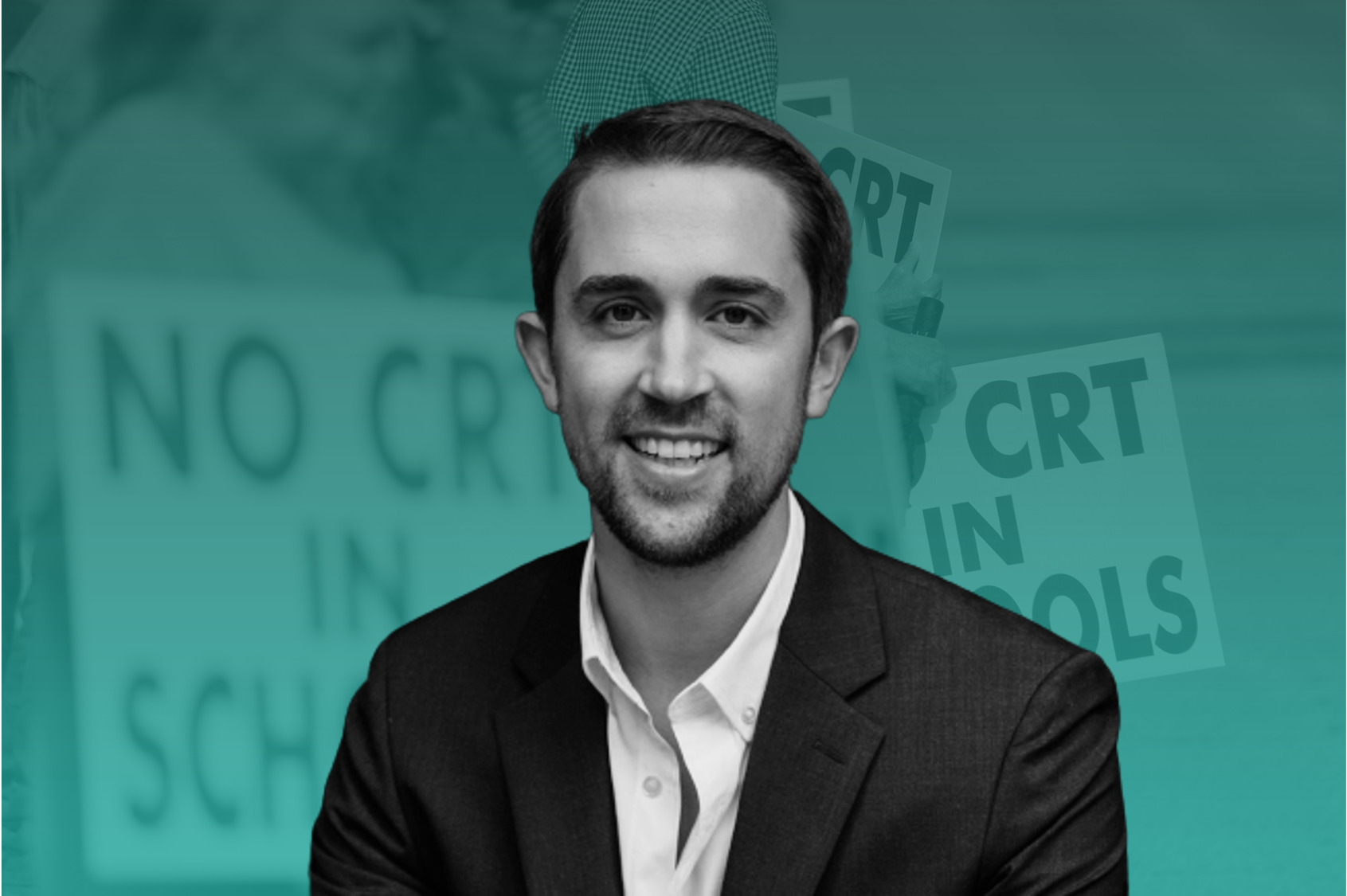Higher Education
Left or Right, Politicians Shouldn’t Be Telling Academics What They’re Allowed to Teach
The campaign to ban Critical Race Theory and other ‘woke’ dogmas channels the same illiberal spirit that conservatives claim to oppose.

The preponderance of Democrats within American academia has been well-documented for many years. One 2018 survey of the political affiliations of 5,197 PhD-holding professors from top-ranked liberal-arts colleges, for example, found Democrat-to-Republican ratios in the 5-to-1 to 8-to-1 range for such subjects as chemistry, economics, mathematics, physics, and computer science. Much higher ratios could be observed in the social sciences and humanities, including psychology (16-to-1), languages (21-to-1), art (40-to-1), sociology (44-to-1), and religion (70-to-1). Anthropology and communications, meanwhile, generated divide-by-zero errors, as there wasn’t a single (self-confessed) registered Republican in the sample.
The same kind of bias is evidenced in Hollywood; as well as the tech industry, whose leaders often serve as gatekeepers as to what political ideas and language may be communicated on electronic media. A Center for Responsive Politics survey published in Vox, measuring employee donations of $200 or more to candidates in the 2018 US midterm elections, found that among funds donated by Netflix employees to either Democratic or Republican candidates, 99.6 percent went to Democrats. At Twitter, the corresponding figure was 98.7 percent; at Airbnb, 97.8 percent; at Apple, 97.5 percent; at Google, 96 percent; at Facebook, 94.5 percent; at PayPal, 92.2 percent; at Microsoft, 91.7 percent; and at Amazon, 89.3 percent. It’s no wonder that members of these professional subcultures sometimes express shock when Democrats lose an election: They’ve simply never met anyone within their milieus who supports (or, at least, admits to supporting) the Republican Party.
Given this, it’s understandable that many American conservatives have become enraged by what they see as an uneven cultural playing field—as symbolized by universities selectively de-platforming conservative speakers, investigating (or even cancelling) academics who refuse to toe the expected ideological line, and promoting pseudo-scientific notions concerning gender and biological sex fluidity. Having observed progressives exploiting their control over the commanding heights of education, mass entertainment, and electronic media, some right-wing firebrands are trying to hit back with those institutions that they control—specifically, Republican-controlled state legislatures and gubernatorial offices.
At the forefront of this movement is Florida, where likely GOP presidential hopeful Ron DeSantis has teamed up with advisor Christopher Rufo, an activist who’s become the unelected national leader of the conservative campaign against Critical Race Theory (CRT) and other illiberal progressive dogmas. “In Florida, we will not let the far-left woke agenda take over our schools and workplaces,” Gov. DeSantis announced in a statement introducing the 2022 “act relating to individual freedom.” According to an explainer on the governor’s website, House Bill 7 (as it is formally known) “deems CRT training to be an unlawful employment practice; ensures Florida’s K-20 students and employees are not subject to Critical Race Theory indoctrination; [and] requires development of [a] ‘Stories of Inspiration’ curriculum to demonstrate important life skills and the principles of individual freedom.” In other words, Florida’s governor and his fellow state Republicans are using their political power to tell educators what they can and cannot communicate in schools.
This is in keeping with Rufo’s project to help conservatives “reconquer public institutions all over the United States.” In January, he posted a video titled “The Conservative Counter-Revolution Begins in the Universities,” urging conservatives, in martial language, to “recapture territory … starting with a board takeover of Florida’s smallest public university, the New College of Florida in Sarasota.” Through that plan, which unfolded successfully this month, DeSantis packed the New College’s board of trustees with conservatives—“including yours truly,” Rufo told his viewers. The goal is to turn the niche, offbeat school into a sort of right-wing higher-learning showcase, along the lines of Hillsdale College, a private Christian conservative school in Michigan that’s regularly touted by FOX News host Mark Levin as a model of educational conservatism.
I’ve written previously about my own concerns with wokeness, Critical Race Theory, and gender politics. And I’ve appreciated Rufo’s efforts to raise awareness about the threats to liberalism posed by these progressive dogmas—a campaign that he’s discussed candidly on the Quillette podcast. As a pundit, Rufo has highlighted cautionary tales within academia that otherwise might have been ignored by the media. In that regard, he should be properly acknowledged for his positive contributions.

But now that Rufo finds himself acting as ideological consigliere to powerful politicians, he’s channelling his own brand of illiberalism. For DeSantis to demand that schools avoid stated topics that conservatives dislike is, in effect, to force his own ideological preferences on academics. This should alarm those who believe in academic liberty—even those (like me) who might otherwise agree with Rufo’s underlying critique of progressive illiberalism. That is why his approach has been criticized by the Foundation for Individual Rights and Expression (the leading defender of academic freedom of speech in the United States now that the ACLU has renounced this role in favour of more fashionable postures), as well as prominent free-speech advocates such as Jonathan Haidt, Jonathan Chait, and Steven Pinker.
How not to fix academia: The always-wise @cathyoung63 exposes DeSantis & Rufo's takeover of New College FL: "Stoking the culture wars, rallying the Trumpist base, and using the power of the state to defeat bad ideas is not the road back to sanity." https://t.co/W2BzR10oCS
— Steven Pinker (@sapinker) January 29, 2023
Haidt, in particular, got it exactly right with his comment to fellow free-speech advocate Cathy Young, who recently wrote about developments in Florida for the Bulwark, in an article entitled, “Ron DeSantis, Chris Rufo, and the College Anti-Woke Makeover”:
People who think the ends justify the means are dangerous, especially when they are leaders of institutions, or political leaders. If they violate longstanding norms to achieve their current goals, they set a precedent. They remove norms and bring us closer to a country of chaos where all that matters is power. This is what DeSantis is now doing with New College. I am horrified that a governor has simply decided, on his own, to radically change a college. Even if this is legal, it is unethical, and it is a very bad precedent and omen for our country.
Young’s article was approvingly tweeted out on January 28th by Pinker, a Harvard professor who’s put his reputational capital on the line by standing up for mobbed individuals on numerous occasions. In response to Pinker’s tweet, Rufo peevishly responded, “Boomers like Steven Pinker presided over the decades-long collapse of standards in academia. Now they want to lecture sanctimoniously about ‘how not to fix academia.’ Sorry, buddy, we’re not going to listen to people who can’t even open their [Twitter] comments. We’re in charge now.”
Boomers like Steven Pinker presided over the decades-long collapse of standards in academia. Now they want to lecture sanctimoniously about "how not to fix academia."
— Christopher F. Rufo ⚔️ (@realchrisrufo) January 29, 2023
Sorry, buddy, we're not going to listen to people who can't even open their comments. We're in charge now. https://t.co/f6pbpYNWpw
Let’s set aside the absurd suggestion that Pinker, by virtue of being a generation older than Rufo, is somehow personally responsible for “the decades-long collapse of standards in academia”; as well as the equally dubious suggestion that Pinker owes Rufo (or anyone) the opportunity to troll him on Twitter in his own comment threads. Let us also pass over the fact that, contrary to Rufo’s claim, conservatives are very much not in charge at most universities. The real problem here is that Rufo is embracing a pugnacious might-makes-right approach, by which one (progressive) set of ideologues shall be trumped in the classroom by another (conservative) set of ideologues through the exercise of brute state power.
This approach is not only illiberal, it’s a betrayal of traditionally conservative ideas—which historically have trumpeted limited government and minimal state intervention. Moreover, if you have to force the citizenry to accept your position by government fiat, it means you haven’t successfully made your case in the marketplace of ideas.
This brings to mind another culture war, fought a century ago. In his closing remarks at the 1925 Scopes Monkey Trial, defense attorney Clarence Darrow warned about what happens when governments start dictating what ideas teachers are allowed to communicate to their students:
If today you can take a thing like evolution and make it a crime to teach it in the public schools, tomorrow you can make it a crime to teach it in the private schools, and the next year you can make it a crime to teach it in the hustings or in the church. If you can do one you can do the other. Ignorance and fanaticism [are] ever busy, and need feeding.
Rufo’s desire to oppose the “ignorance and fanaticism” of woke fundamentalists is understandable—commendable, even. It’s an impulse I share. But principled opposition and top-down suppression are two very different things. With the words, “We’re in charge now,” Rufo is signalling to us either that he’s willing to ignore the moral distinction between the two; or, less charitably, that he simply never cared about this distinction to begin with.






